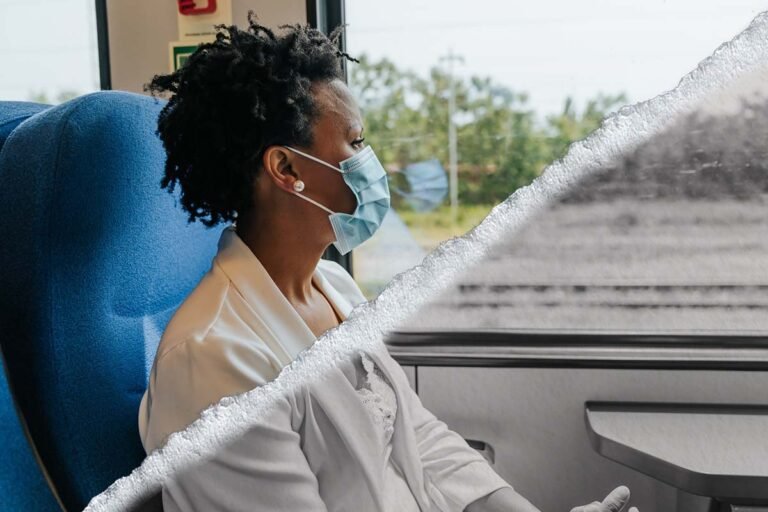March 2024 marked 4 years for the reason that COVID-19 pandemic upended life as we knew it. Non-essential employees stayed residence. Faculty buildings closed and lecturers scrambled to ship digital studying. Individuals turned remoted, socialized with a restricted circle of household and mates, wore masks, and practiced social distancing (six toes aside!) in public areas. Celebrations have been postponed, funerals have been missed, and holidays have been noticed just about. Households misplaced family members, and essential workers felt burned out.
Because of this, 41 p.c of all U.S. adults reported experiencing high levels of distress in some unspecified time in the future throughout the pandemic, in accordance with surveys carried out by the Pew Analysis Middle between March 2020 and September 2022. For younger adults ages 18 – 29, that determine reached 58 p.c.
“The pandemic’s isolation in all probability harm younger individuals extra,” says Dr. Ryan Connolly, psychiatrist and Senior Medical Director of Behavioral Well being at Independence Blue Cross. “They’re extra prone to be single, and it took away extra of their social retailers. Most psychological well being points start within the second or third decade of life and within the context of stress; the pandemic was definitely such a stress.”
The IBX Opinions Group Weighs in
To study extra concerning the pandemic’s impression on individuals in our area, we surveyed the IBX Opinions group in February 2024. IBX Opinions is a panel of 1,600 volunteers from the 5-county area, ages 18 and over, who reply to on-line surveys. They embody IBX members, non-members, and uninsured people.
Of the 449 survey respondents, 173 have been 18 – 64 years of age and 276 have been 65 years of age or over; 309 reported their gender as feminine and 140 recognized as male.
Right here’s what we discovered:
- Respondents reported being both extraordinarily involved (11 p.c) or considerably involved (55 p.c) about contracting COVID-19 at this time.
- They have been most involved about the opportunity of lingering side effects (84 p.c), the potential for severe sickness resulting in hospitalization (63 p.c), or infecting others who’re immunocompromised (61 p.c).
- Whereas 93 p.c of respondents reported limiting or modifying their social interactions throughout the top of the pandemic (2020 – 2021), solely 37 p.c accomplish that at this time.
“4 years following the onset of the pandemic, there’s in all probability an rising feeling that there’s not rather more to do,” Dr. Connolly says. “Individuals have been vaccinated in the event that they’re going to be. And there’s plenty of social stress. Even the CDC has mentioned that individuals can return to normal activities in the event that they haven’t any fever and their signs have improved for twenty-four hours.”
Psychological Well being Results of the COVID-19 Pandemic
Simply over half of all IBX Opinions respondents (57 p.c) reported that the pandemic had no impression on their psychological well being. For the remaining 43 p.c who have been affected, nervousness was essentially the most cited impression (27 p.c), adopted by loneliness (11 p.c), and despair (10 p.c).
Nevertheless, respondents ages 18 – 64 reported greater incidences of hysteria (35 p.c vs. 22 p.c); despair (16 p.c vs. 7 p.c); and grief (12 p.c vs. 6 p.c) than their older counterparts.
Assist for Psychological Well being
Respondents reported taking a wide range of steps to improve their mental health for the reason that pandemic. A number of the extra widespread coping mechanisms included:

